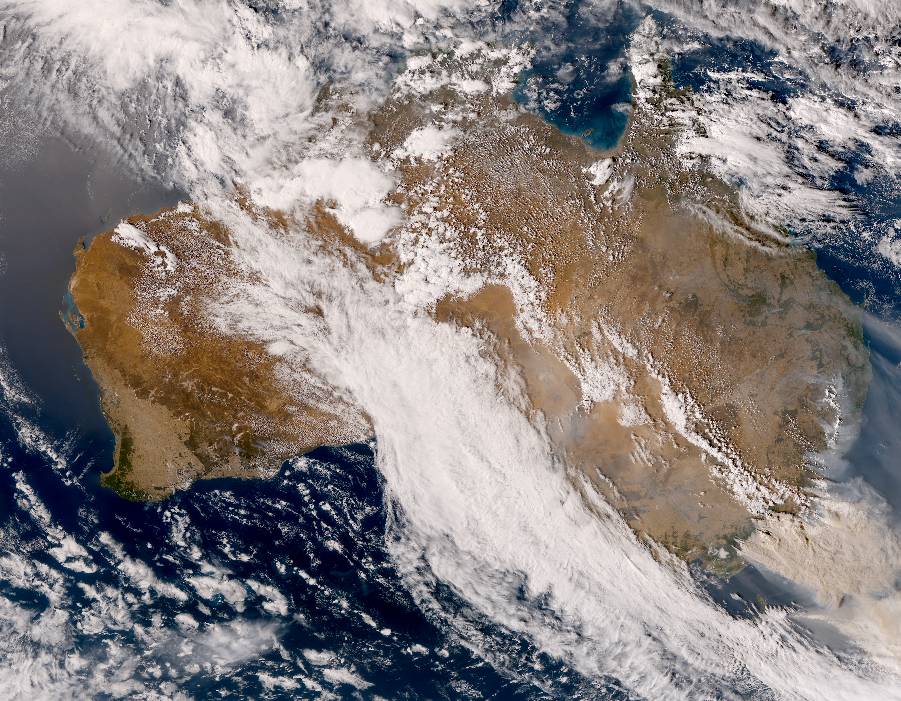Millions of acres burned, almost 2000 homes lost, over a billion animals dead and 137 thousand posts on Instagram with the hashtag #bushfiresaustralia. The Australian hellscape has dramatically captured the world’s attention (and pocketbook) as an example of our worst climate change fears manifested. These weren’t just your average summer wildfires; this was a catastrophe of unseen proportions. Two of the most highly publicized fires of recent memory, the 2019 California fires and the Amazon rainforest fire, were both significantly smaller than the fires that burned in Australia (California’s fires were only 1/80th as large).
In the midst of a global pandemic and mass protests about racism and police brutality in the U.S. and beyond, it’s easy to forget what happened just a few months ago. It’s been a long year. However, despite our collectivized attention being occupied by our current crises — and they undoubtedly deserve it — it’s important to not forget what transpired just a few months ago.
In response to a global event of such a scale, social media exploded with millions of people from around the world weighing in to offer sympathy, raise awareness, and express horror. Viral images of burned koalas and kangaroos fleeing the heat stoked public outcry. An impressive international response quickly manifested as a result, with millions being donated to rural firefighting organizations accustomed to receiving only a fraction of such contributions. One Facebook fund-raiser started by Australian comic Celeste Barber raised $34 million, the most ever on the platform.
A massive grass-roots movement of volunteers mobilized to fight the fire, provide aid and care for affected people and animals, exemplifying the country’s fighting spirit and sense of shared responsibility. After months engulfed in an inferno, the fires finally abated on March 2 — the first time Australia was fire-free since July 2019 — only to be replaced by rainfall and intense flooding.
Despite all of the media coverage, the tweets, and the signed checks, the fires have largely been forgotten, swept up in the chaos of the craziest year in many people’s lives. Yet it’s important that, while we must deal with our current crises, we don’t lose sight of the overarching climate crisis.
Australia wasn’t ready to tackle climate change head on back in February — even as the world watched as its effects have torn through the country’s forests and painted its cities black with ash. According to Climate Action Tracker, the Morrison government’s current policies are “insufficient,” meaning they would push the world significantly past the 2 ºC upper limit established by the Paris Agreement in 2015. If raging blazes weren’t enough to convince the Australian government, reliant on fossil fuel exportation for economic growth, to do something about climate change, then, after months of job losses and a crippled economy, they are even less likely to do anything.
The Australian government, reliant on fossil fuel exportation, remains committed to short-run economic growth over long-term institutional growth. And they’re not the only ones.
The U.S. is scheduled to leave the Paris Agreement on November 4, a day after the presidential election. Prior to COVID-19 hitting the globe, the nations of the world were set to convene in Glasgow for the annual Conference of Parties, at which they were supposed to celebrate Paris’ 5-year anniversary by upping their commitments. This event has been postponed.
As the effects of the coronavirus become more potent and the world economy struggles to recover from a serious recession, will there be enough political capital for countries to do more about climate change? It’s tempting to see this as overwhelming, as another hurdle to jump when the ground under our feet is bottoming out. However, these tumultuous times also hold enormous potential. The 1972 UN Conference on the Human Environment, the first of four such mega-conferences and representative of the increasing importance of environmental issues, arose out of the unrest of the 1960s — as did the EPA, the Clean Water Act, and the Clean Air Act. My hope is that this year, with all of its craziness, will bring about a necessary perspective change in the world,
One of our current chief problems with climate change is our attitude to it. In a New York Times article examining the Australian way of life post-fire, Sydney-based journalist Lisa Pryor remarked:
While we are fighting for political action, we also need to ask ourselves hard questions as individuals and communities. The question I have been asking myself is, what does it matter that I accept the science of climate change if I continue to live my life as if climate change were a hoax? Who cares how many people accept the data if we are still consuming, traveling, investing, eating, dressing, voting and planning for the future as if global warming were imaginary?
She’s right. Irrespective of an ongoing debate about the validity of climate change — especially in the US — many of the people who do agree with the science of global warming don’t act like it. And that has significant implications, far beyond Australia.
If a country that has been so visibly impacted by the effects of climate change isn’t changing its tune, then what can we hope for more insulated nations to do? Mitigating the effects of climate change will require drastic efforts, and those will start in the way we perceive climate change’s dangers. Just as many people are waking up to the threat of systemic racism and to the disruption of our global economy due to a pandemic, all of us need to come to the realization that climate change making sacrifices to deal with the coronavirus, and just as many are fighting for racial justice and an end to police brutality, so too do people need It will take a mobilization on the scale of the currently ongoing racial protests to advocate for the reform we need.
Amid all the chaos of the last few months, it’s easy to put off dealing with climate change. And yes, I agree, let’s fix our immediate issues. But it’s important to not forget that the drastic effects of climate change are already here. While this is a time of unrest and of instability, it is also one of change and movement. Let’s use our collective anger and our desire for reform to overcome our apathy towards climate change. We can’t have another Australia.
The views expressed by the author do not necessarily reflect those of the Glimpse from the Globe staff, editors or governors.







